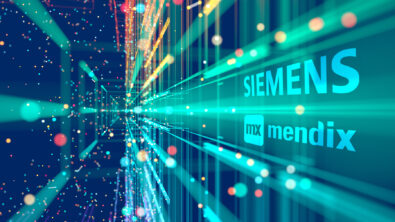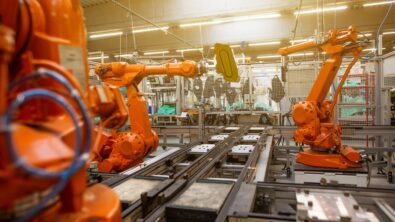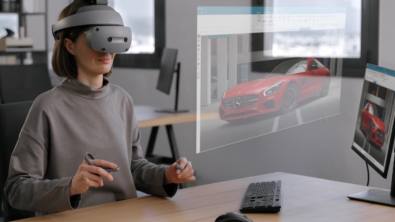How AI allows knowledge to be explored in a new way

Understanding, leveraging, and applying knowledge across an entire company is key element to the continued digital transformation of industry. This can take many forms, everything from helping interpret multi-domain data through natural language processing without the need for users to become domain experts themselves to deploying predictive quality and maintenance solutions that help maximize uptime and minimize downtime in production environments.
In a recent podcast, Subba Rao, Director of Manufacturing Industries Cloud for Mendix, a part of Siemens Xcelerator, explored some of the ways AI is enabling this progress, especially through low-code development platforms, like Mendix. Low-code development and other, similar, assistive tools aren’t the only way AI is helping either as apps developed using these platforms are also becoming AI-enabled, allowing for even greater progress to be made along the path of industrial digitalization. Check out the full episode here, read the transcript here, or keep reading for some of the highlights of that conversation.
AI makes complex data simple
Deploying an AI model to production isn’t a simple task, Subba explains. It is one that would traditionally require collaboration between AI and domain experts, in both developing the model and implementing it into its intended piece of software. This is due in no small part to the highly specialized and domain-specific nature of both AI research, and the various industrial applications where that research can be implemented.
Using a generative AI assistant, this can be alleviated however and even extended beyond the relationship between domain and AI experts to allow anyone who requires it to gain meaningful information and insight from domain-specific knowledge without needing to become an expert themselves. This enables a new paradigm for learning and knowledge acquisition, granting users conversational access to vast libraries of important knowledge across any field imaginable. In turn, this enables users to better create the apps and tools they need without being hampered by a lack of cross-domain expertise.
Leveraging AI to maximize quality
Developing better, smarter applications is important but, equally so, is resolving any issues that might arise, be that in production equipment or in the final product itself. Subba explains how AI can assist in both these areas as well, leveraging historical data to provide predictive quality and maintenance assistance while also providing virtual engineering support to maintenance crews.
With the smart, connected, machines deployed in modern factories a wealth of data is available when it comes to correct and incorrect operation but it can be difficult to translate that data into actionable information. By deploying machine learning algorithms trained on this data, it’s possible to make highly accurate predictions about when a machine is likely to fail or require servicing and alert technicians before it becomes a major problem. At the same time, these machine learning algorithms can also be used to help identify underlying process and production issues that are resulting in defective or otherwise unusable parts. By examining the large quantities of available data, these algorithms can correlate particular defects in a final part or product to a particular step in the manufacturing process, making it quicker and easier to find and identify critical problems.
Once a problem has been identified, AI can also streamline the process of troubleshooting and fixing it. Troubleshooting problems requires extensive knowledge of both systems and symptoms to correctly identify and fix any problem that might occur. However, it can take years of training and experience to quickly identify and fix problems with incredibly complex machines and systems that operate modern factories. By applying AI to the problem however, it’s possible to greatly shorten both the training time and the time it takes to resolve any single problem.
Based on historical error data, and AI model could quickly and accurately identify exactly what problem a machine or process is facing while at the same time, parsing through relevant documentation to generate an easy to follow and understand repair procedure. Using the power of generative AI, a virtual engineer could provide a technician with an exact repair sequence tailored not only for the exact problem they’re facing, but even to the experience of the person fixing it.
AI presents an opportunity to reimagine the way people, machines, and information interact with each other – making complex tasks and data simple and accessible to human operators. As the complexity of manufacturing systems and industrial applications only continues to grow exponentially over the coming years, having a means to provide a simple, accessible interface to all who need it will be of greater importance than ever before, a role that AI is perfectly suited to slip into.
To find out more, check out the full podcast episode here or read the transcript here.
Siemens Digital Industries Software helps organizations of all sizes digitally transform using software, hardware and services from the Siemens Xcelerator business platform. Siemens’ software and the comprehensive digital twin enable companies to optimize their design, engineering and manufacturing processes to turn today’s ideas into the sustainable products of the future. From chips to entire systems, from product to process, across all industries. Siemens Digital Industries Software – Accelerating transformation.


